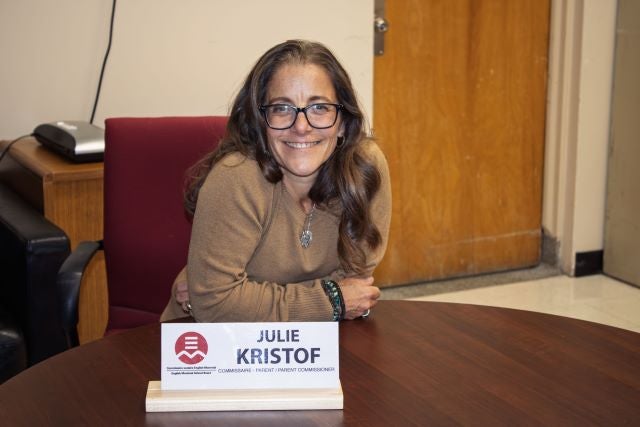Advocacy, gratitude and growth in our schools

My daughter was born in August of 2007 with complex medical issues and diagnosed at 18-months-old with a rare, chronic and fatal disease called Familial Dysautonomia. The diagnosis was a kicker, a reality that her symptoms were not going to resolve or get better. It was also a significant realization for her older brother, my husband and I that we were on a path that was fundamentally different than the one we had expected and dreamed of. We were now on a path that was filled with the unknown. We grieved.
At this point you might be thinking: “Julie, isn’t this piece about gratitude?” Yes, it is. Stay with me!
After the diagnosis, I was very worried about my son and how the trauma might impact his world. My very wise husband pointed out that every person goes through some kind of trauma – it’s how we choose to deal with that trauma that is important. From that moment on, with the exception of the times that I roll up into a ball and cry (that’s okay too!), the mantra in our home was to not waste energy on what we can’t control, but to focus on what we can.
I am grateful for so many people and so many things.
In the context of the advocacy I do, I am grateful for my voice.
I get to use my voice to ask questions, identify gaps and to contribute to great initiatives. I am trying to forge partnerships and build bridges between different groups and communities. I am trying to be vulnerable and speak up when I don’t understand something or am confused. I am grateful for my voice.
I first got involved by joining the Governing Board of my daughter’s school. Then, I sat on the English Montreal School Board (EMSB) Parents Committee, then the Advisory Committee on Special Education Services (ACSES), and last year I was elected to sit on the EMSB Council of Commissioners as the parent commissioner for ACSES.
I am super excited to be working on a program planned for next spring and hosted by John Grant High School called Spring into Support Night. This event is a heartfelt celebration of neurodiversity that brings together students, families, educators and community organizations in a welcoming and inclusive environment.
I believe that every person has a voice and is an advocate for something they care about. Your voice makes a difference, maybe you can’t tell immediately, but as the Dalai Lama said, “Just as ripples spread out when a single pebble is dropped into water, the actions of individuals can have far-reaching effects.”
Julie Kristof is a mother and sits as parent commissioner – ACSES on the English Montreal School Board’s elected Council of Commissioners, as a member of the EMSB Parents Committee and proudly chairs the Governing Board at John Grant High School.









